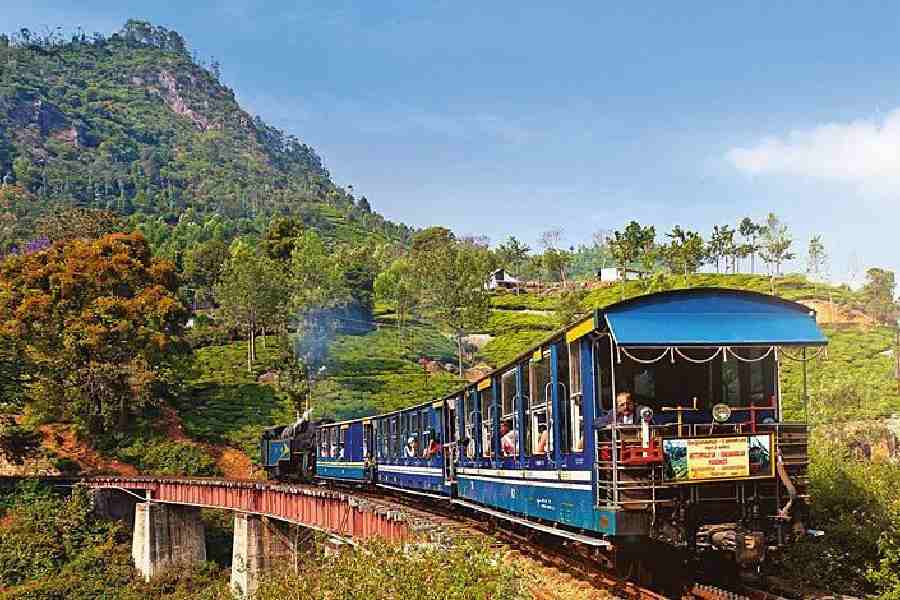 |
| BLT supporters at a public meeting on the issue of immediate implementation of the Bodo Accord at Judges Field in Guwahati in June. Picture by Eastern Projections |
Procrastination in solving the Bodo problem has given the rebels reason to continue their offensive — the efficacy of which they themselves suspect
At present, everyone in Assam could be having premonitions of an undesirable situation due to unnecessary procrastination in settling some issues relating to the Bodoland Territorial Areas District (BTAD). The bill for creation of BTDA has already been assented to by the President of India as the final touch on the part of the Union government. Now the ball is in the court of the Assam government. It has to undertake the task of energising the whole process of formation of the BTDA. Formal notifications of BTDA and four new districts and the demarcation of final boundary of the same are still to be done by the state government. Albeit unwillingly, but reference to the 1993 Bodo Accord naturally comes to mind. Even then, the boundary had been the core issue of disagreement as cause for the failure of the Accord. At that time, the number of disputed villages was more than 500; now it is 95 villages only. Again, the cabinet under the leadership of late Hiteswar Saikia used to take all positive or negative decisions; now, the state cabinet distances itself from taking direct responsibility and hands over most of the disputed matter to bureaucrats. The method of functioning may differ, but as far as the decision-making process is concerned, the political body is above all others. The move of the government to give a multi-dimensional face to this problem cannot thus pave the way for positive development.
As far as the Bodo Liberation Tigers’s (BLT) strategy is concerned, it very often says that it will not surrender arms and ammunition before the government if all the major clauses of the Accord are not implemented in letter and spirit. This obviously indicates its intention to take recourse to armed action. On the other hand, the government always likes to play hide and seek on genuine issues. Perhaps this game is also a part of the usual politics of the ruling force to agree to disagree. However, time does not spare anybody and too much polititiking on genuine issues may again give rise to hatred and acrimony, which may spell doom for the state.
Assam has one of the most popular chief ministers in the country, according to one popular journal. This observation may have some credibility because the Tarun Gogoi government came to power by breaking previous poll records of the Congress party in Assam. At the same time, Tarun Gogoi is also considered to be a liberal chief minister as compared to others. Simple arithmetic thus says that with its present strength, the Gogoi-led Congress government in Assam can decide any matter that is not detrimental to the common interests of the people, without involving the opposition parties. And they really have shown this strength in the case of recommending the matter of Koch-Rajbongshis, Adivasis, Moran-Motok, Tai Ahom and many others in the Scheduled Tribe plains list — where the need to hold an all-party meet was not felt at all. The government also took a decision to oppose the issue of repealing of the Illegal Migrants (Determination by Tribunal) Act contradicting the opinion of the major opposition parties of Assam.
Govt delay
But in the case of settling the Bodo problem, the government wants to show that it is very democratic and depends only on consensus. The Assam government cannot recommend the issue of inclusion of Bodo Kacharis of Karbi-Anglong into the Scheduled Tribe (hills) list directly since they think it will be an undemocratic move. What it wants to do is decide every matter relating to the Bodos through all- party meetings. Why is the present chief minister so interested in sharing credit with all other parties in the case of settling the Bodo issue? Why does he always want somebody to come forward with some opinion that only serves to delay the process? Perhaps for this government, politics in the Bodoland area has not always been gainful in the past. And even now they do not see any changes.
The present crisis revolving around 95 villages that is to be included in the BTAD is a matter whose responsibility lies with the Assam government. It can also be settled without wasting time. A tripartite committee, involving the Centre, Assam government and the BLT had been formed to monitor the implementation process of the Bodo Accord even after the formation of interim council. That committee was not meant for settlement of village disputes. But the state cabinet would like to hand over this issue also to the tripartite committee. This seems to be just a tactical ploy of the Assam government to get rid of its responsibility. The tripartite committee has no power to concede any villages to be included in the BTAD. It can only submit a report to the Assam government that should be considered and approved by the same. Again this process will consume time and make inordinate delay in ending the crisis.
Failed council
According to the terms and spirit of the Accord, an interim council with movement leaders should have been formed just after the three months from the day of the accord. The BLT was supposed to surrender their arms and ammunition before the government after the formation of the interim council. But already seven months have gone by, and the BLT cadres are still carrying arms in hands because the interim council of the BTDA has not been formed and interestingly this situation has not worried the government. The reasons always remain obscure for us.
Can we now expect any fresh initiative from the government to expedite the process of settling the village disputes, demarcation of four new districts, formation of interim council of BTDA and surrendering of arms and ammunition by the BLT? It must not be forgotten that in the supreme house of our democracy, the Parliament, Union home minister L.K. Advani had said that the peace negotiations with the BLT was the first step towards peace process in insurgency-infested north eastern region of the country. This statement will translate into reality when the Bodo Accord will be implemented in toto.
The perpetual dilly-dallying tactics in implementing the Bodo Accord may only bring more and more perplexities into the situation. As of now, the BLT has started countering gun power, which they considered to be the only reality in the recent past, with the reality of the might of the pen.
The BLT has openly appealed to the younger generation not to get fascinated with the gun culture, which is often misinterpreted as revolution and freedom. One need not try to search for theoretical explanations for their present realisation because it is more than theory that they are trying to transform their doctrine of violence into non-violence. In this context, the delay in the process of formation of the BTAD means giving indulgence to them to continue with arms for a longer period. At this stage, the Centre has not much to do. It is the state that has to take up proactive policies to bring about a peaceful and honourable conclusion to the crisis.










